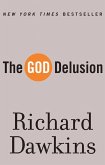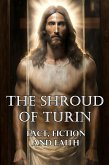The ebook "The God is Not Here - The Evidence Against the Divine Being" is a comprehensive exploration of the arguments against the existence of a divine being. Through a thorough examination of scientific, philosophical, theological, historical, and ethical arguments, the book provides a nuanced analysis of the evidence for and against the existence of God. The book begins with an overview of the different concepts of God and the importance of examining the evidence for and against the existence of a divine being.
The scientific arguments presented in the book include the Big Bang theory, the theory of evolution, the laws of thermodynamics, and the findings of neuroscience. The philosophical arguments discussed in the book include the problem of evil, the argument from nonbelief, the argument from consciousness, and the argument from analogy and lack of evidence. The theological arguments presented in the book include the inconsistencies and contradictions in religious texts, the diversity of religious beliefs, the problem of divine hiddenness, and the absence of universally accepted proof of God's existence.
The historical arguments discussed in the book include the lack of credible evidence for the existence of God, the historical reliability of religious texts, the changing nature of religious beliefs over time, and the relationship between religion and politics. The ethical arguments presented in the book include the ethical implications of belief in God, the absence of a universal moral code, the challenge of defining God's morality, and the relationship between religion and violence.
In conclusion, the ebook provides a thoughtful and well-reasoned analysis of the arguments for the non-existence of God, and provides a final evaluation of the evidence for and against the existence of a divine being. The book is a valuable resource for anyone looking to understand the complexities of this ongoing debate.
Hinweis: Dieser Artikel kann nur an eine deutsche Lieferadresse ausgeliefert werden.
The scientific arguments presented in the book include the Big Bang theory, the theory of evolution, the laws of thermodynamics, and the findings of neuroscience. The philosophical arguments discussed in the book include the problem of evil, the argument from nonbelief, the argument from consciousness, and the argument from analogy and lack of evidence. The theological arguments presented in the book include the inconsistencies and contradictions in religious texts, the diversity of religious beliefs, the problem of divine hiddenness, and the absence of universally accepted proof of God's existence.
The historical arguments discussed in the book include the lack of credible evidence for the existence of God, the historical reliability of religious texts, the changing nature of religious beliefs over time, and the relationship between religion and politics. The ethical arguments presented in the book include the ethical implications of belief in God, the absence of a universal moral code, the challenge of defining God's morality, and the relationship between religion and violence.
In conclusion, the ebook provides a thoughtful and well-reasoned analysis of the arguments for the non-existence of God, and provides a final evaluation of the evidence for and against the existence of a divine being. The book is a valuable resource for anyone looking to understand the complexities of this ongoing debate.
Hinweis: Dieser Artikel kann nur an eine deutsche Lieferadresse ausgeliefert werden.









